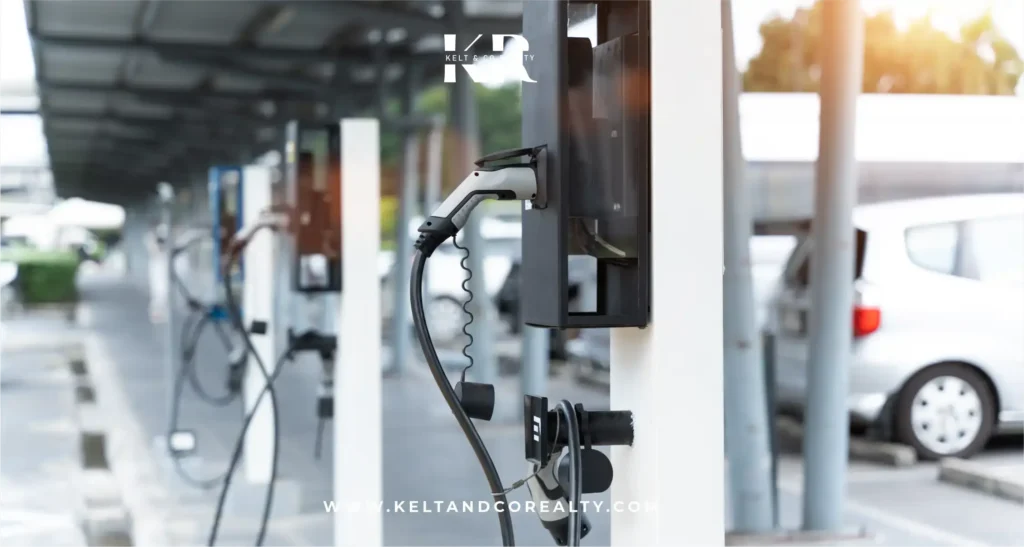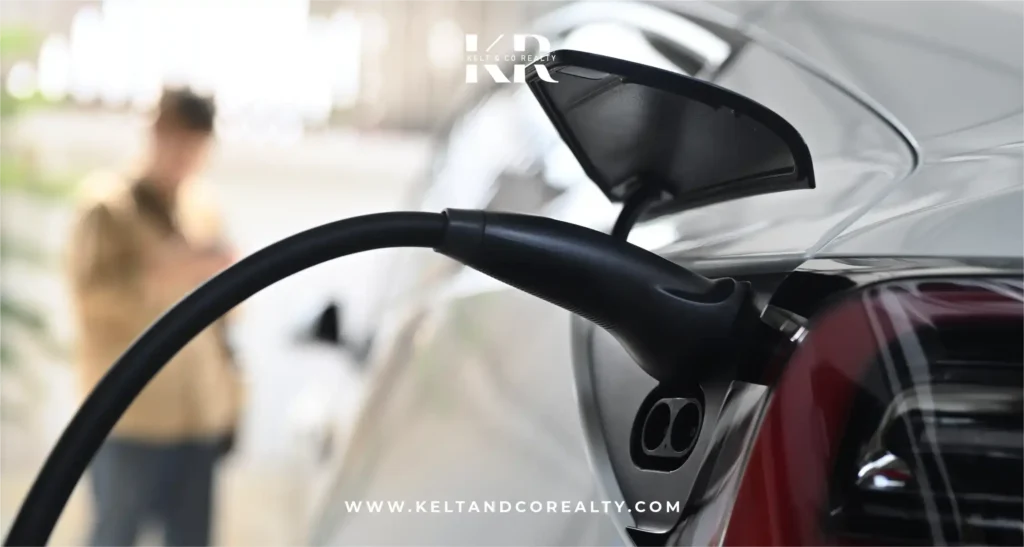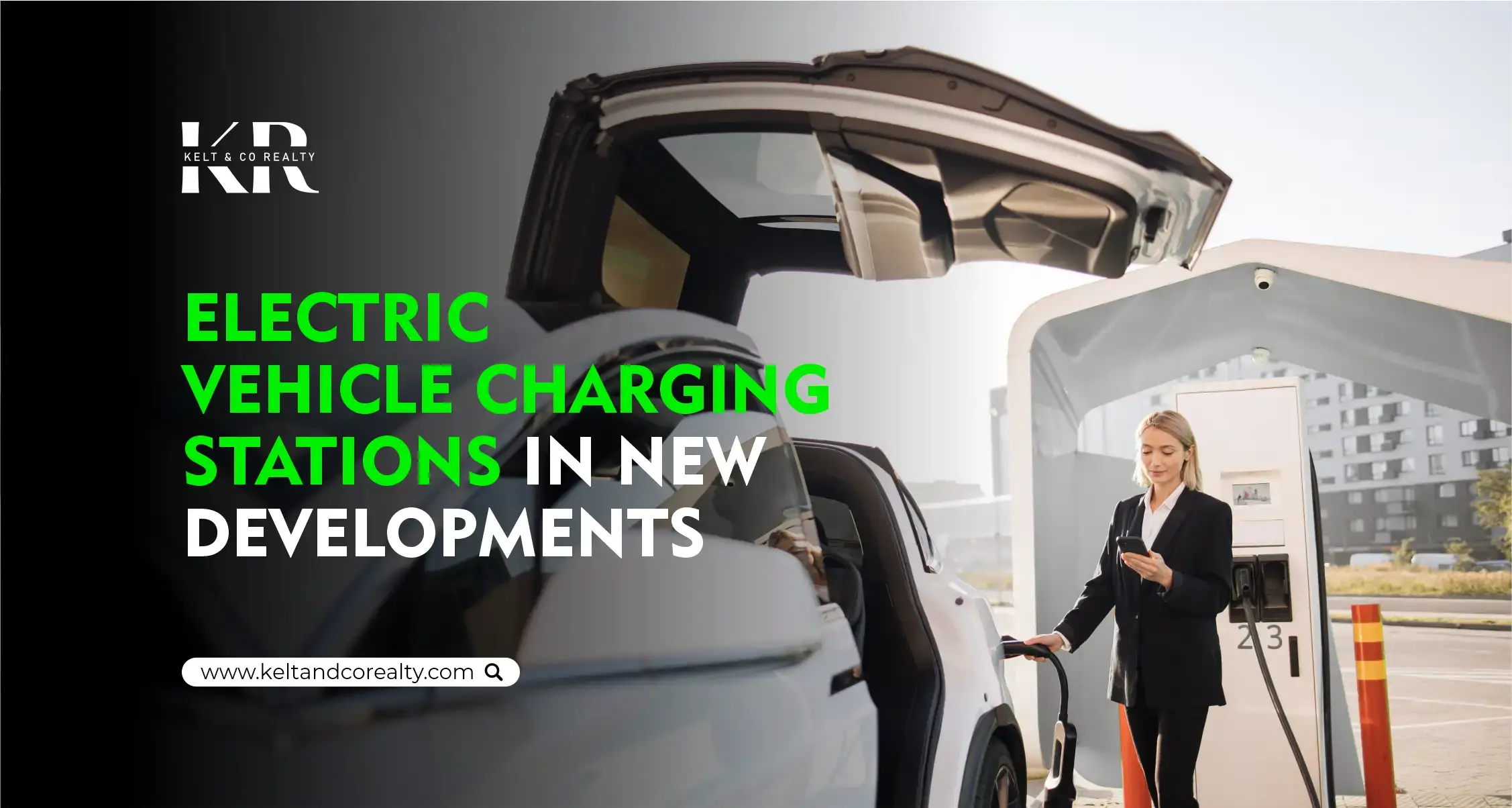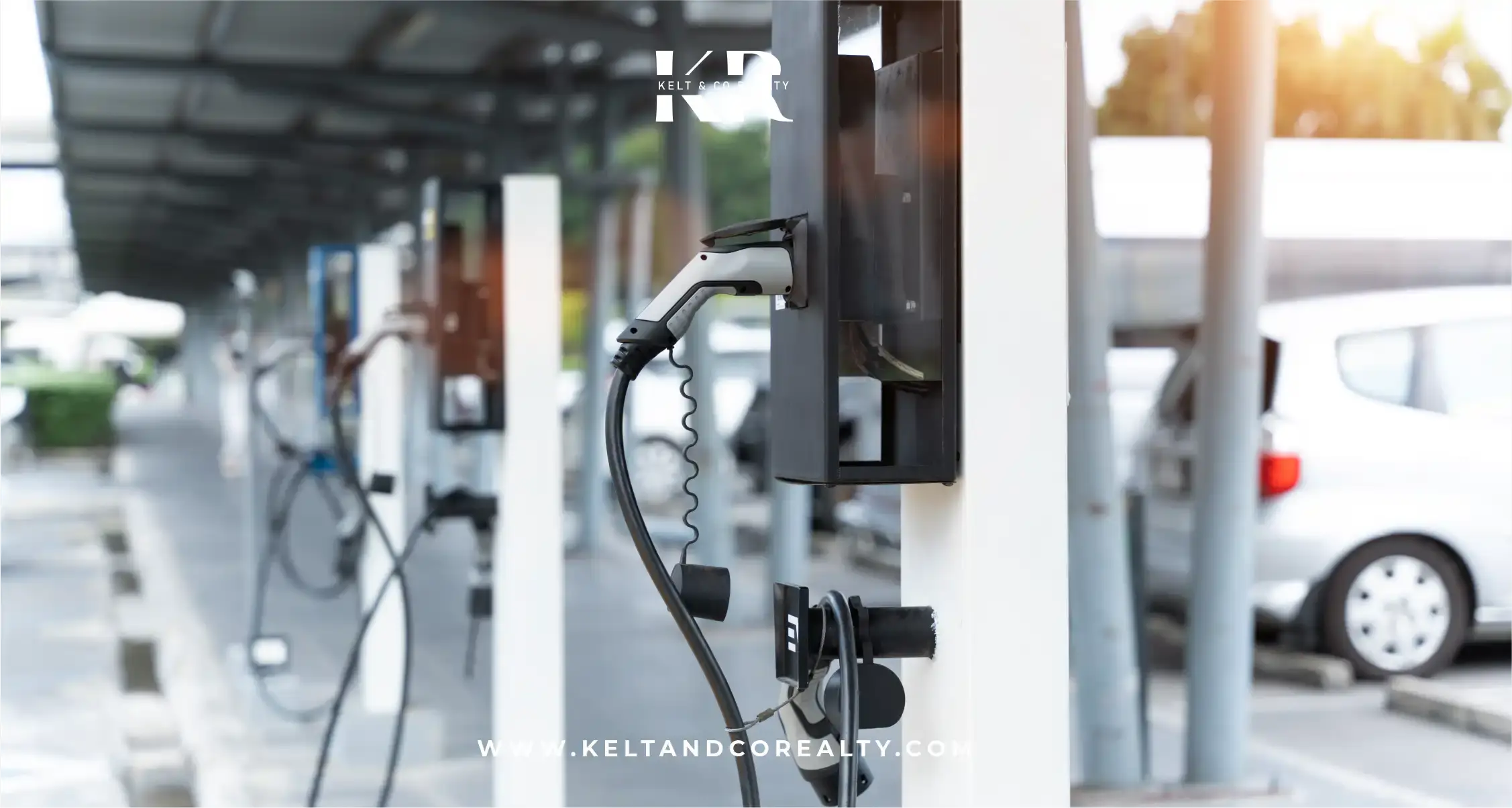Electric Vehicle Charging Stations in New Developments of Dubai
Dubai is one of the most developed cities in the world. It is mainly known for its amazing skyline, luxury developments, world-class infrastructure and top-notch facilities and amenities. The city is also taking initiatives to develop sustainable and eco-friendly communities where people can live a happy and healthy lifestyle. Given this, it also focuses on electric vehicles to create sustainable transport systems, offering a cleaner, sustainable and energy-efficient future.
The adoption of electric vehicles (EVs) has also increased the demand for EV charging systems. Considering this rapidly increasing use of electric vehicles, the city administration has strived its efforts to meet this growing need to not only facilitate residents and reduce their carbon footprint but also reshape the future of urban living.
The Rise of EV Charging Infrastructure in Dubai’s Properties
Dubai is committed to reducing carbon emissions and promoting the idea of a sustainable and eco-friendly lifestyle. The city is prioritizing the development of an infrastructure to meet the growing demand for EV charging stations. Dubai Electricity and Water Authority (DEWA) has developed numerous charging stations in the city to extend convenient charging services to EV users. These charging stations are located in residential areas, and commercial and public spaces of the city to promote sustainable living and reduce the use of traditional fuel sources.
The tide has shifted. Nowadays people prefer a sustainable and eco-friendly lifestyle and live their lives accordingly. They now consider using electric vehicles to play their part in developing a sustainable future for all. The city administration is supporting this trend by facilitating EV users by developing various kinds of charging stations in key areas of the city, including high-traffic areas, malls, commercial parking facilities, etc.

Types Of DEWA Electric Vehicle Charging Stations
Several types of charging stations have been installed by DEWA in Dubai to cater to the needs of EV owners. These charging stations are designed to suit the requirements of vehicles and locations. Let’s explore the types of DEWA EV charging stations!
Ultra-Fast Chargers (DC): These are the most powerful charging options. They offer 150 KW DC charge, allowing a vehicle to completely charge its battery in 15-30 minutes. These are mainly located in high-demand locations like transit hubs and petrol stations. This particular charge normally costs AED 22.84 per 30 minutes.
Fast Chargers (DC): Though these are fast and efficient chargers but not as fast as ultra-fast chargers. Considered a convenient and reliable way to power up EVs without long wait times. They may take 20-40 minutes to charge 80% of the battery, costing AED 3.61 per minute. Fast chargers are cheaper than ultra-fast chargers and are normally preferred for quick top-ups.
Public Chargers (AC): These are 22 KW AC chargers that are installed adjacent to parks, shopping malls and business districts. Public chargers normally cost AED 3.35 per minute and it may take 2-4 hours to complete a single charge.
Wall-Box Chargers (AC): Their charging time and rates are the same as public chargers. Normally, they are installed at private residences or commercial parking facilities. It also takes 2-4 hours to charge a car based on the battery capacity of an EV and costs AED 3.35 per 30 minutes.
Home Chargers: EV owners can also charge their vehicles overnight through home chargers. These chargers normally take 6-8 hours to completely charge an EV’s battery and the cost of these charges is paid via other DEWA charges.
Electric Vehicle Charging Stations’ Locations in Dubai:
EV users can explore an extensive network of EV charging stations spread across the city. You can find these charges in several popular areas, including petrol stations, business hubs, shopping malls, tourist destinations, residential communities, etc. This huge network of EV chargers ensures that EV users can charge their vehicles conveniently without any hassle.
- Public EV Charger, Gate Avenue, DIFC
- Public EV Charger, Al Nasr Club, Maktoum Stadium
- Public charger, Dubai Courts
- EV Charging Station, Lower Basement, Festival City Mall
- ENOC Petrol Station, Dubai Internet City
- ENOC Petrol Station, Wadi Al Safa
- Public EV Charger, DEWA, Burj Nahar Customer Happiness Center
- Public EV Chargers, Dubai Hospital, Deira
- Wallbox EV Charger, City Walk
- Public EV Charger, H.H. Sheikh Ahmed Bin Rashid Al Maktoum Office, Al Wasl Road
- EV Charger, Grand Parking, Dubai Mall

Government Support & Regulations for EV Charging in Dubai
The government is taking initiatives to reduce carbon footprints and promote sustainable and eco-friendly lifestyles. In the context of EVs, it has come with numerous incentives such as free parking for EVs, lower registration fees and green loans. These efforts are aimed at fostering the transition to EVs.
Furthermore, the Under Secretary for Energy and Petroleum Affairs at the Ministry of Energy and Infrastructure, Sharif Al Olama, recently stated that the United Arab Emirates intends to increase the number of EV charging stations in the country. Over 500 EV charging stations will be installed in the country by the end of 2025 to tackle carbon emissions and foster a transition to clean transportation
Also, technological advancements are being incorporated to develop smart charging stations. There will be IoT-driven systems in the future, offering more efficient and quick charging services. Along with that, authorities are also focusing on the integration of renewable energy into EV charging to utilize solar power to make EV charging more affordable, cost-effective and sustainable.
The demand for EV charging stations is growing rapidly. Modern charging stations may have innovative options such as wireless or mobile charging options, making the EV charging process smoother and also reducing waiting times.
Conclusion:
Dubai is committed to sustainable and eco-friendly living. The city’s emphasis on the adoption of EVs and the development of electric vehicle charging stations highlight its zeal to redefine the future of the city. EV owners can find charging stations in various locations of the city such as Gate Avenue, DIFC, Festival City Mall, Dubai Internet City, City Walk, Dubai Hospital Deira, Wadi Al Safa, Burj Nahar Customer Happiness Center, etc. The city’s administration is further expanding EV charging infrastructure to meet the growing need and developing these charging stations near residential, commercial and public spaces.
Your Dream Property in Dubai is Just a Call Away!
Kelt and Co Realty is a prominent real estate development company. This property company comes with a range of real estate investment options, facilitating local and foreign investors to choose the most suitable investment based on their specific needs and preferences. If you are passionate about buying property in Dubai then our real estate agents can help you make a profitable investment decision because our team believes in offering tailor-made solutions.
What types of EV charging stations are available in Dubai?
EV owners can explore several types of EV chargers such as ultra-fast chargers (DC) 150KW, fast chargers (DC) 50KW, Public chargers (AC) 22KW, Wall-Box chargers (AC) 22KW, etc. Charing time and rate in these types of chargers significantly differ.
Where can I find EV charging stations in Dubai?
EV charging stations are available in residential areas, business hubs, shopping malls, petrol stations, tourist destinations and public parking areas. You can find these charges in DIFC, Festival City Mall, DIFC, Dubai Internet City, etc.
Is it possible to install an EV charger at home in Dubai?
Yes. DEWA allows residents to install EV chargers at their homes in Dubai. You can charge your vehicle overnight through these charges.
How long does it take to fully charge an EV in Dubai?
Charging time normally depends on the type of charger. The ultra-fast charger takes around 15-30 minutes, the fast charger takes 20-40 minutes to charge 80% of the battery, the public charger takes 2-4 hours and home chargers take around 6-8 hours to fully charge an EV.




